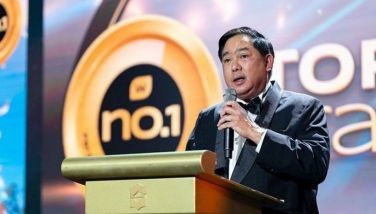Marrying Economics and Theology (second of three parts)
What has theology to do with economics? They are both sciences of human action but have traditionally been treated as “very separate and isolated disciplines” says D. Stephen Long author of Divine Economy. His book is said to be “the first book to directly address the need for an active dialogue between the two.” And to try connecting the dots of how the disciplines of theology and economics are, and should, be related, Long began by studying the economists’ own original revolutionary event beginning with Adam Smith and then tracing the historical “traditioning” of that event through the philosophical liberals, the Christian political economists, the marginalist revolution, the Austrian school and the Keynesian revolution (forays into Marxism and socialist discourse were also necessary). He then compared and contrasted these traditions of thought with the Christian tradition to identify the philosophical and theological narratives that rendered intelligible the discipline of economics.
While Long was amply and convincingly clear to find the theological connection and the basis to which many of the economic theories are currently applied, he also brings to light how modern economics has distanced itself to the very theological foundations for which it was initially grounded that it has become a rigid and stoic discipline -- that it substitute the meaning of value for the value one gets in terms of utility and material gain.
He exampled Adam Smith’s argument in which Smith posited that the highest level of productivity owners could expect from their laborers was double the cost of their maintenance. This was the highest expectation of profit based on the lowest possible costs of production. “Here we see, early on in the development of economic analysis, the pernicious effect of positive-normative or fact-value distinctions. The ‘natural’ fact is that a slave represented the cheapest possible form of labor,” Long observes.
Thus “The economists’ tools merely unearth the economic facts of a situation irrespective of its underlying socio-political formation.” While they appear to have universal applicability, it comes at the expense of offering any substantive social, moral, or theological analysis.
However, since slavery has already been outlawed, one might counter-argue that the example presented is irrelevant or at the very least outdated. But the idea Long wants to forward is the simple fact that economics is a value-oriented discipline that the remnants of its utilitarian principles are as the same since Adam Smith’s time. In another example, our economics textbooks today still carry those principles where which that provides the most money is good economics.
“First, ‘opportunity costs’ are the costs incurred by someone for forsaking one choice in favor of another. Then a question is posed based on the following example: Mrs. Harris spends an hour preparing a meal. However, she is also a ‘psychologist in private practice, and can obtain $50 per hour for her services. Thus, we must ask: what are the opportunity costs involved in her preparing the family meal? This seems a harmless enough question. The situation is a nice way of explaining that for every action chosen, another opportunity is sacrificed. The facts seem incontestable. No matter what our values might be concerning family, work, religion, politics, etc., when Mrs. Harris makes dinner she foregoes the opportunity of generating $50. But this description is misleading. While it appears to give us merely the facts, it gives us much more. It invites us to construe our lives, primarily our lives as family members, in terms of the activities of producers and consumers. The family meal loses all incommensurable status with other consumable objects. All such objects are placed before the individual and he or she is asked ‘Which objects will you forego for the sake of the others? How long will you continue to exchange until you have sufficient xs and adequate ys? How many xs will you forego for the sake of how many ys?’ The question assumes a form of rationality, known as ‘marginalism,’ that inevitably reduces all forms of life to ‘utility’ and ‘interest.”
Good economics from a theological perspective according to Long is “to discover what is reasonable, what is true, good and beautiful is the end to which all other ends point because this end is entrusted to the value of individual life the equality and importance of persons in God.”
Send emails to [email protected]
- Latest
- Trending





















